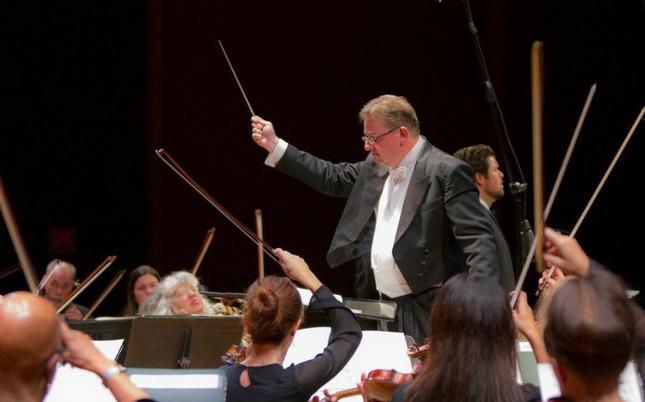Obscure Strauss Opera, ‘Guntram,’ to Be Performed Sunday at GW for Second Time in the U.S.
By • March 19, 2015 0 760

Washington Concert Opera is known for putting on rare productions of sometimes legendary or little known operas. “Guntram,” Richard Strauss’s first opera from 1894, certainly fits the bill, and it will be performed at George Washington University’s Lisner Auditorium Sunday, March 1.
Last produced for the first time in the United States 32 years ago, “Guntram” is a kind of two-for-the-price-of-one opera in the sense that it presages both the great and later operas of Strauss, such as “Der Rosenkavalier,” and mightily echoes strong Wagnerian themes and operas.
“Guntram” premiered in May 1894 at the Grossherzogliches Hoftheater in Weimar, Germany, and later in Munich and Frankfurt—and then in Prague, part of the Austro-Hungarian Empire at the time. It was not considered a failure after its debut, which may account for the lack of later performances and interest.
In 1940, Strauss revised and trimmed the opera, making it a more readily accessed work for audiences. But the plot—and the music—remains Wagnerian in scope and approach. Wagner was an idol of the young Strauss, and Strauss took on the task of writing the libretto which is Wagner to the core.
“Guntram” concerns a sweet, brave minstrel knight—middle Europe and the lands of Germania were full of such swains in medieval times—named Guntram, who sets out, as knights were wont to do, to promote kindness, peace and brotherhood. Instead, he manages to kill the husband of the woman he loves. German to the core, Guntram renounces pleasures of the flesh and departs to contemplate and to suffer deep, guilty feelingst—perhaps not real life but operatic and surely Wagnerian.
Plot in opera isn’t everything and the Washington Concert Opera’s artistic director and conductor Antony Walker (who is also conducting “Dialogue of the Carmelites” at the Washington National Opera) saw a work that “heralds a new period in his [Strauss’s] compositional maturity.”
The Washington Concert Opera is presenting the 1940 version which trimmed 45 minutes of music and, according to Walker, “turns what was a slightly unwieldy work into a tightly dramatic and beautiful opera. As well as using Wagnerian inspired leitmotifs and philosophical ideas, Strauss clearly presents us with the beginnings of a very personal operatic style: through his daring use of harmony, the virtuoso demands of the orchestra and the very “modern” idea that concludes the opera. Walker is in his 13th season at the Washington Concert Opera.
Because of the demands of the music, the Washington Concert Opera orchestra has been increased to 65 musicians.
The cast is led by artists who know their way around both Strauss and Wagner. Critically acclaimed for heroic Wagner roles, tenor Robert Dean Smith takes on the title role, with soprano Marjorie Owens singing Freihild. Smith, who lives in Switzerland, starred at the 1997 Bayreuth Festival in “Der Meistersinger.”
This performance will be only the second American production: the first was a production by the Opera Orchestra of New York in 1983.

